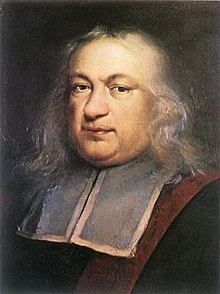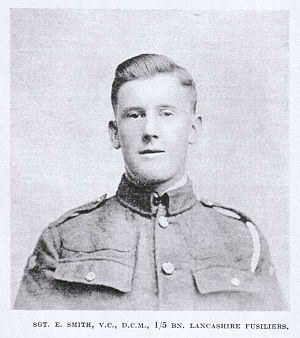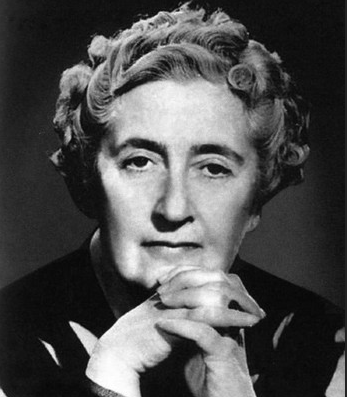January 12 is the 12th day of the year in the Gregorian calendar. There are 353 days remaining until the end of the year (354 in leap years).
Holidays
- Christian feast day:
- Earliest day on which Lee–Jackson Day can fall while January 18 is the latest, celebrated on the Friday before Martin Luther King Day. (Commonwealth of Virginia)
- Memorial Day (Turkmenistan)
- National Youth Day (India)
- Zanzibar Revolution Day (Tanzania)
In 475, Byzantine Emperor Zeno is forced to flee his capital at Constantinople, and his general, Basiliscus gains control of the empire.
In 1528, Gustav I of Sweden crowned king of Sweden.
In 1539, Treaty of Toledo signed by King Francis I of France and Holy Roman Emperor Charles V.
In 1554, Bayinnaung, who would go on to assemble the largest empire in the history of Southeast Asia, is crowned King of Burma.
In 1665, Pierre de Fermat, French mathematician and lawyer (b. 1601) died. He was a French lawyer at the Parlement of Toulouse, France, and an amateur mathematician who is given credit for early developments that led to infinitesimal calculus, including his technique of adequality. In particular, he is recognized for his discovery of an original method of finding the greatest and the smallest ordinates of curved lines, which is analogous to that of the differential calculus, then unknown, and his research into number theory. He made notable contributions to analytic geometry, probability, and optics. He is best known for Fermat’s Last Theorem, which he described in a note at the margin of a copy of Diophantus‘ Arithmetica.
In 1773, The first public Colonial American museum opens in Charleston, South Carolina.
In 1777, Mission Santa Clara de Asís is founded in what is now Santa Clara, California.
In 1808, The organizational meeting that led to the creation of the Wernerian Natural History Society, a former Scottish learned society, is held in Edinburgh, Scotland.
In 1848, The Palermo rising takes place in Sicily against the Bourbon Kingdom of the Two Sicilies.
In 1866, The Royal Aeronautical Society is formed in London.
In 1872, Yohannes IV is crowned Emperor of Ethiopia in Axum, the first imperial coronation in that city in over 200 years.
In 1895, The National Trust is founded in the United Kingdom.
In 1898, Itō Hirobumi begins his third term as Prime Minister of Japan.
In 1899, 13 crew members and 5 apprentices are rescued from the stricken schooner Forest Hall by the Lynmouth Lifeboat when the former flounders off the coast of Devon.
In 1899, Hiram Walker, American businessman, founded Canadian Club (b. 1816) died. He was an American grocer and distiller, and the eponym of the famous distillery in Windsor, Ontario, Canada. Walker was born in East Douglas, Massachusetts, and moved to Detroit in the mid-1830s. He purchased land across the Detroit River, just east of what was Windsor, Ontario, and established a distillery in 1858 in what would become Walkerville, Ontario. Walker began selling his whiskey as Hiram Walker’s Club Whiskey. It became very popular, angering American distillers, who forced the U.S. Government to pass a law requiring that all foreign whiskeys state their country of origin on the label. This move backfired; Hiram Walker’s Canadian Club Whiskey became more popular following the change.
In 1906, Sir Henry Campbell-Bannerman‘s cabinet (which included amongst its members H. H. Asquith, David Lloyd George, and Winston Churchill) embarks on sweeping social reforms after a Liberal landslide in the British general election.
In 1908, A long-distance radio message is sent from the Eiffel Tower for the first time.
In 1911, The University of the Philippines College of Law is formally established; three future Philippine presidents are among the first enrollees.
In 1915, The Rocky Mountain National Park is formed by an act of U.S. Congress.
In 1915, The United States House of Representatives rejects a proposal to give women the right to vote.
In 1918, Finland‘s “Mosaic Confessors” law went into effect, making Finnish Jews full citizens.
In 1921, Acting to restore confidence in baseball after the Black Sox Scandal, Judge Kenesaw Mountain Landis is elected as Major League Baseball‘s first commissioner.
In 1926, Original Sam ‘n’ Henry aired on Chicago, Illinois radio later renamed Amos ‘n’ Andy in 1928.
In 1932, Hattie Caraway becomes the first woman elected to the United States Senate.
In 1940, Edward Smith, English soldier, Victoria Cross and Distinguished Conduct Medal recipient (b. 1899) died. He was an English recipient of the Victoria Cross, the highest and most prestigious award for gallantry in the face of the enemy that can be awarded to British and Commonwealth forces.
In 1942, World War II: President Franklin D. Roosevelt creates the National War Labor Board.
In 1959, The Caves of Nerja are rediscovered in Spain.
In 1962, Vietnam War: Operation Chopper, the first American combat mission in the war, takes place.
In 1964, Rebels in Zanzibar begin a revolt known as the Zanzibar Revolution and proclaim a republic.
In 1966, Lyndon B. Johnson states that the United States should stay in South Vietnam until Communist aggression there is ended.
In 1967, Dr. James Bedford becomes the first person to be cryonically preserved with intent of future resuscitation.
In 1969, The New York Jets of the American Football League defeat the Baltimore Colts of the National Football League to win Super Bowl III in what is considered to be one of the greatest upsets in sports history.
In 1970, Biafra capitulates, ending the Nigerian Civil War.
In 1971, The Harrisburg Seven: Reverend Philip Berrigan and five others are indicted on charges of conspiring to kidnap Henry Kissinger and of plotting to blow up the heating tunnels of federal buildings in Washington, D.C.

In 1971, All in the Family The famous situation comedy premieres on CBS
In 1976, The United Nations Security Council votes 11-1 to allow the Palestine Liberation Organization to participate in a Security Council debate (without voting rights).
In 1976, Agatha Christie, English author (b. 1890) died. She was an English crime writer of novels, short stories, and plays. She also wrote six romances under the name Mary Westmacott, but she is best remembered for the 66 detective novels and 14 short story collections she wrote under her own name, most of which revolve around the investigations of such characters as Hercule Poirot, Miss Jane Marple and Tommy and Tuppence. She also wrote the world’s longest-running play, The Mousetrap.
In 1986, Space Shuttle program: Congressman Bill Nelson lifts off from Kennedy Space Center aboard Columbia on mission STS-61-C as a Mission Specialist.
In 1991, Gulf War: An act of the U.S. Congress authorizes the use of military force to drive Iraq out of Kuwait.
In 1998, Nineteen European nations agree to forbid human cloning.

In 2001, William Redington Hewlett, American engineer and businessman, co-founded Hewlett-Packard (b. 1913) dies of heart failure in Palo Alto, California. He was an American engineer and the co-founder, with David Packard, of the Hewlett-Packard Company (HP). Hewlett attended undergraduate classes taught by Fred Terman at Stanford and became acquainted with David Packard. Packard and he began discussing forming a company in August 1937, and founded Hewlett-Packard Company as a partnership on January 1, 1939. A flip of a coin decided the ordering of their names. Their first big breakthrough came when Disney purchased multiple audio oscillators designed by Hewlett for use in the production of the film Fantasia.
In 2001, Downtown Disney opens to the public as part of the Disneyland Resort in Anaheim, California.
In 2004, The world’s largest ocean liner, RMS Queen Mary 2, makes its maiden voyage.
In 2005, Deep Impact launches from Cape Canaveral on a Delta II rocket.
In 2006, A stampede during the Stoning of the Devil ritual on the last day at the Hajj in Mina, Saudi Arabia, kills at least 362 Muslim pilgrims.
In 2006, The French warship Clemenceau reaches Egypt and is barred access to the Suez Canal. Greenpeace activists board the ship.
In 2007, Comet C/2006 P1 (McNaught) reaches perihelion becoming the brightest comet in more than 40 years.
In 2007, Alice Coltrane, American pianist and composer (b. 1937)
In 2010, The 2010 Haiti earthquake occurs killing an estimated 316,000 and destroying the majority of the capital Port-au-Prince.
In 2011, Paul Picerni, American actor (b. 1922) dies from a heart attack on January 12, 2011 in Palmdale, California. Picerni is interred at the Roman Catholic San Fernando Mission Cemetery. He was an American actor with a long, distinguished career in film and television, perhaps best known today in the role of Federal Agent Lee Hobson, second-in-command to Robert Stack’s Eliot Ness in the ABC hit television series, The Untouchables.
Born in New York City, Picerni was an Eagle Scout. He joined the United States Army Air Forces during World War II and served as a B-24 Liberator bombardier in the China-Burma-India Theater. He flew twenty-five combat missions with the 493rd Bomb Squadron of the 7th Bomb Group and received the Distinguished Flying Cross. He was part of a mission that attacked and destroyed the actual bridge made famous in the film The Bridge on the River Kwai (1957). After the Japanese surrendered, Picerni became a Special Services officer in India. Following his discharge, he enrolled at Loyola Marymount University in Los Angeles, California.
As a young actor returning from the war, he appeared in military pictures: in Twelve O’Clock High (1949) as a bombardier and as Private Edward P. Rojeck in Breakthrough. This led to a Warner Brothers contract and a succession of roles at that studio including a Portuguese Socialist “Red” agitator in 1952’s The Miracle of Our Lady of Fatima, the hero of the 1953 horror classic, House of Wax. After his departure from Warners, he appeared with Audie Murphy in Universal Studio’s To Hell and Back.
Picerni married former ballet dancer Marie Mason, in 1947. They settled in Tarzana, California, to rear their family; they had eight children, Paul, Jr., Nicci (deceased), Gemma, Maria, Charles, Mike (deceased), Philip, and Gina, and ten grandchildren. Many of their children and family are employed as Hollywood stunt people, including son Paul V. Picerni, Jr., grandson Rick Picerni, sister Paula Picerni and brother Charles Picerni.
His autobiography, Steps to Stardom: My Story, written with the help of Tom Weaver, was published by BearManor Media in 2007.
In 2012, Violent protests occur in Bucharest, Romania, as two-day-old demonstrations continue against President Traian Băsescu‘s economic austerity measures. Clashes are reported in numerous Romanian cities between protesters and law enforcement officers.
In 2012, United Nations Security Council Resolution 2033 relating to peace and security in Africa is adopted.
In 2014, The first season of True Detective, an American anthology crime drama television series created by Nic Pizzolatto, premiered on HBO on January 12, 2014, starring Matthew McConaughey, Woody Harrelson, Michelle Monaghan, Michael Potts, and Tory Kittles. The nonlinear narrative in eight episodes focuses on Louisiana State Police homicide detectives Rust Cohle (McConaughey) and Marty Hart (Harrelson) as they investigate the murder of prostitute Dora Lange in 1995. Seventeen years later, they must revisit the investigation, along with several other unsolved crimes. The first season explores themes of philosophical pessimism, masculinity, and Christianity; critics have analyzed the show’s portrayal of women, its auteurist sensibility, and the influence of comics, weird fiction and horror fiction on its narrative. The episodes, directed by Cary Joji Fukunaga, were filmed in Louisiana. The series received positive reviews and garnered a Primetime Emmy Award nomination for Outstanding Drama Series and a Golden Globe Award for Best Miniseries or Television Film, along with other honors for writing, cinematography, direction, and acting.
In 2015, Cameroon kills 143 Boko Haram fighters in clashes.
In 2015, A serviceman stationed at the Russian 102nd Military Base, kills seven people in Gyumri, Armenia.
In 2016, Ten people are killed and 15 wounded in a bombing near the Blue Mosque in Istanbul.

In 2018, Keith Jackson, American sports commentator and journalist (b. 1928) dies on the night of January 12, 2018. He was an American sports commentator, journalist, author and radio personality, known for his career with ABC Sports (1966–2006). While he covered a variety of sports over his career, he is best known for his coverage of college football from 1952 until 2006, and his distinctive voice, with its deep cadence and operatic tone considered “like Edward R. Murrow reporting on World War II, the voice of ultimate authority in college football.”
In 2020, Taal Volcano in the Philippines erupts, and kills 39 people.




